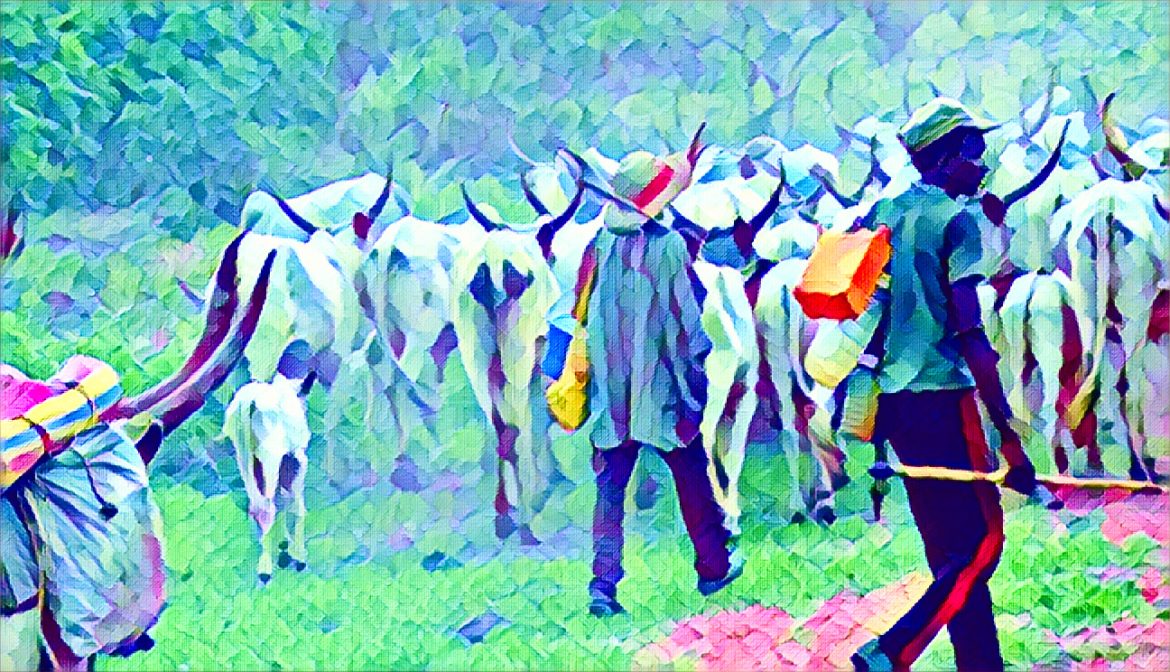Nigeria’s Senate has initiated steps to ban open grazing, aiming to end the violent clashes between pastoralist herders and farmers. These clashes have resulted in numerous deaths, food insecurity, and unemployment in many parts of the country. The proposed law advocates for ranching as a modern, sustainable alternative to the traditional practice of open grazing, which has become a source of significant conflict.
Senator Titus Zam of Benue North-West introduced the bill, emphasizing that outlawing open grazing would align Nigeria with international best practices in animal husbandry. He highlighted that this shift could prevent further violence and promote peace among diverse communities. The bill suggests that ranches be established in the herders’ states of origin, ensuring that communities without pastoralist populations are not forced to adopt this practice. Additionally, the bill requires herders to seek approval from local communities before establishing ranches, promoting harmony and reducing the potential for conflict.
The Senate’s debate on the bill was heated, reflecting the contentious nature of the issue. Northern lawmakers, including Deputy Senate President Barau Jibrin, opposed the bill’s stipulation that ranches be limited to the herders’ states of origin. They argued that this provision could marginalize pastoralist communities and restrict their traditional way of life. Despite this opposition, the bill passed a voice vote and was referred to the Senate Committee on Agriculture and Trade and Investment, along with the Committee on Legal Services, for further review. These committees have been given one month to report back with their findings and recommendations.
For over five years, northern Nigeria’s drought and desertification have driven herders southward, leading to frequent and violent clashes with local farmers. These clashes often result from competition over land and resources, with herders seeking grazing land for their cattle and farmers protecting their crops. Armed herders have been accused of various crimes, including vandalizing farmlands, terrorizing communities, and even killing those who resist their encroachments. These actions, along with the government’s failure to curb their excesses, have exacerbated tensions and contributed to a climate of fear and insecurity.
Efforts to preserve open grazing have largely failed, with many states enacting laws against it. In 2021, the Southern Governors Forum collectively banned open grazing in all 17 southern states, urging the federal government to support modern livestock management systems. This move aimed to reduce conflicts over land and promote sustainable practices that would benefit both herders and farmers. The governors argued that development and population growth have increased the pressure on available land, making the traditional practice of open grazing untenable in many areas.
Eminent jurist Chief Afe Babalola (SAN) argued that even if grazing colonies are established, herders might still encroach on other lands, leading to further conflicts. He noted that overgrazing could force herders to seek new territories, exacerbating tensions and undermining efforts to promote peace and stability. These concerns highlight the need for comprehensive and well-enforced legislation to address the root causes of the conflicts and provide sustainable solutions.
The persistent clashes between herders and farmers have become a significant security challenge for Nigeria, compounding the terrorism from Boko Haram and ISWAP and the activities of other criminal gangs. The Senate’s move to ban open grazing is seen as a crucial step toward national peace and security. Lawmakers are urged to prioritize national interest over ethnic sentiments to ensure effective governance and promote social cohesion.
The Nigerian constitution guarantees freedom of movement, but this does not extend to allowing herders to graze cattle on others’ farmlands, which threatens livelihoods and creates conflict. The primary duty of the government is to protect its citizens’ lives and property. By promoting ranching and modern livestock management practices, the government can help mitigate the risks associated with open grazing and support the development of a more sustainable and secure agricultural sector.
The Senate’s efforts to ban open grazing are essential for promoting peace and preventing further bloodshed. This legislative action is expected to foster a safer, more harmonious Nigeria by addressing the root causes of the herders-farmers clashes and providing a framework for sustainable livestock management. The proposed law represents a significant step forward in the country’s efforts to address its complex security and agricultural challenges.
In addition to the legislative efforts, the Senate has also proposed a national summit on the matter, along with a public hearing to gather input from various stakeholders. This inclusive approach is intended to ensure that the final legislation is comprehensive and addresses the concerns of all affected parties. By engaging with communities, experts, and industry representatives, the Senate aims to develop a robust and effective framework for managing livestock and promoting peace.
The proposed ban on open grazing reflects a growing recognition of the need for modern, sustainable agricultural practices in Nigeria. By transitioning to ranching and other contemporary methods of livestock management, the country can reduce conflicts, protect livelihoods, and promote economic development. The Senate’s initiative is a critical step in this direction, signaling a commitment to addressing one of Nigeria’s most pressing security and social challenges.
As the legislative process continues, it will be essential for the government to provide support and resources to help herders transition to new practices. This may include training, financial assistance, and infrastructure development to establish ranches and other facilities. By investing in the future of the livestock sector, Nigeria can create a more stable and prosperous environment for all its citizens.
The Senate’s move to ban open grazing is a bold and necessary step toward addressing the longstanding conflicts between herders and farmers. By promoting modern, sustainable practices, the government can help ensure a more peaceful and prosperous future for Nigeria. The success of this initiative will depend on the commitment and cooperation of all stakeholders, from lawmakers to local communities, in working together to achieve lasting peace and development.
Source: The Guardian


